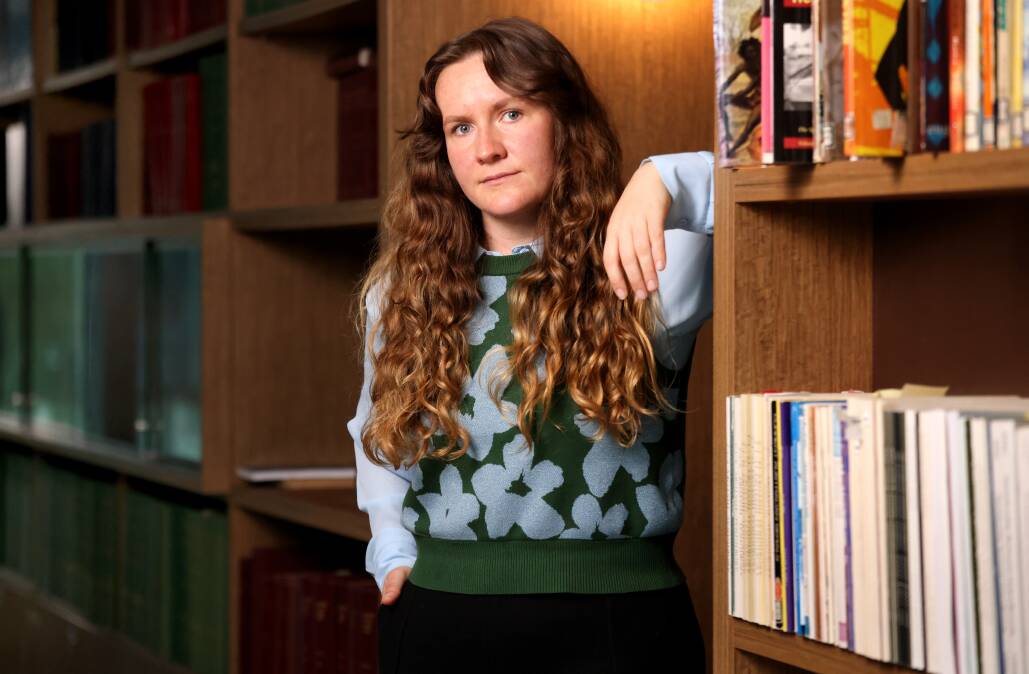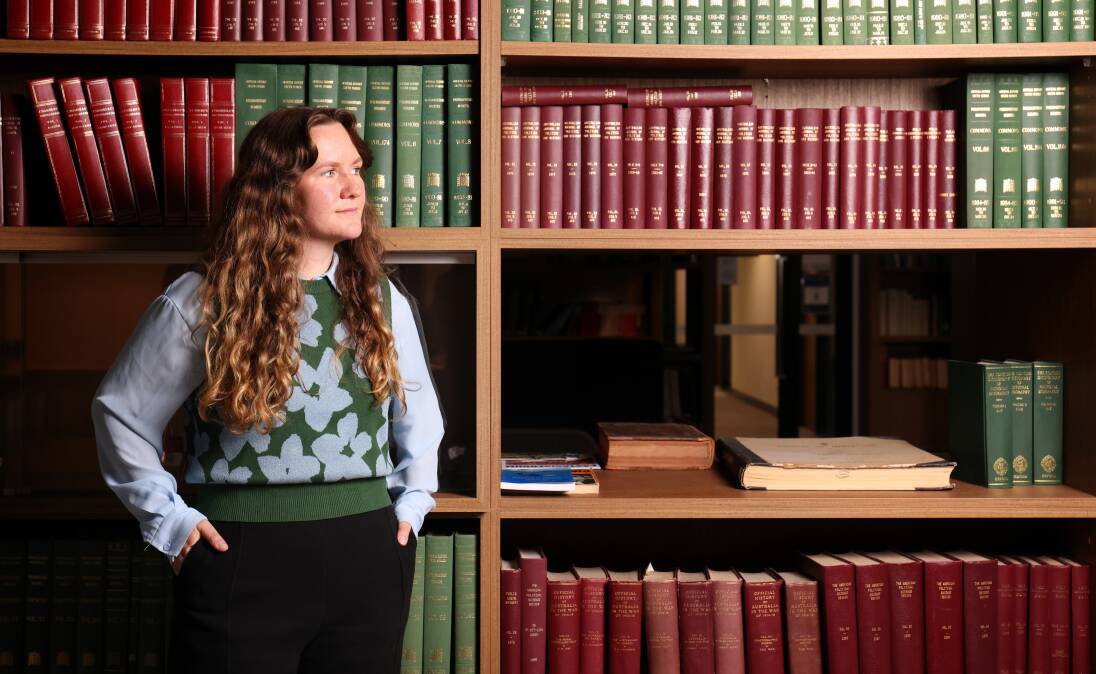

Academics across the country have been left in the lurch as ongoing repairs and rain damage restricts access to collections at the National Library of Australia.
The heritage-listed copper roof is still under repairs after damage from the infamous 2020 Canberra hailstorm. Work on the leaky roof coupled with window replacements and installing a new heating, ventilation and cooling system mean many items at the library will be unavailable until November 2023.
This uncertainty has impacted students and academics across Australia. Many are still recovering from restricted access put in place during the height of the COVID-19 pandemic.
ANU School of History PhD candidate Jessica Urwin is one month away from submitting her final thesis.
She is currently going back through footnotes, and checking books used over the past three years of research. However, more than 20 works key to her thesis are now unavailable at the National Library.
She said most of the Australian history collection had been taken off-site.
Ms Urwin came up with an unusual solution to the problem. She was able to crowdsource information from fellow academics on Twitter.
"I was really lucky that most of the books I was able to crowdsource by getting page numbers from academics or contents from academics," she said.
"There are still a few rare books that I looked at two years ago, cited, took page numbers and referenced but now I have no option of going back to them.
"The National Library is the only place that has these rare books. It's been tough coming towards the end of my thesis."
In September, the NLA announced its collections housed on the top floor would be closed off until next year after water damaged some rare and priceless pieces. Luckily, no irreplaceable items were lost.
Ms Urwin stressed many other PhD candidates had been impacted more significantly by access issues at the National Library.
Many academics outside of the ACT have been forced to cancel summer research trips, delaying their work.
"The National Library is an institution that is fundamental to us being able to actually do our job," Ms Urwin said.
"It's been hard to plan my post-PhD research trajectory when I don't know what I'm going to be able to access over the next 12 months.
"There's not a lot of communication around what collections are going to be taken offline and which ones are going to be available."
For James Watson, also a PhD candidate at ANU, the unavailability of some collections at the National Library is impacting his income.
Like many PhD students, he works as a researcher for other academics unable to travel to Canberra.
"An important part of being a PhD student is that you get a scholarship but it's never enough to make a living just by itself. So, you do research work for other people," Mr Watson said.
"I'm doing a project for someone in Melbourne at the moment and I put in a request to get access to papers. It's been a month [without the papers] and that supplementary income is getting affected."
National Library director-general Dr Marie-Louise Ayres told The Canberra Times in September that the library had retrieved 4000 boxes and volumes for researchers who were currently in Canberra, or had planned research trips within the next few months.
"That's taken up every available bit of space in the library, we don't have capacity to do more," she said.
"But I'm so pleased that at least some of our researchers are going to be able to continue their work."
We've made it a whole lot easier for you to have your say. Our new comment platform requires only one log-in to access articles and to join the discussion on The Canberra Times website. Find out how to register so you can enjoy civil, friendly and engaging discussions. See our moderation policy here.







